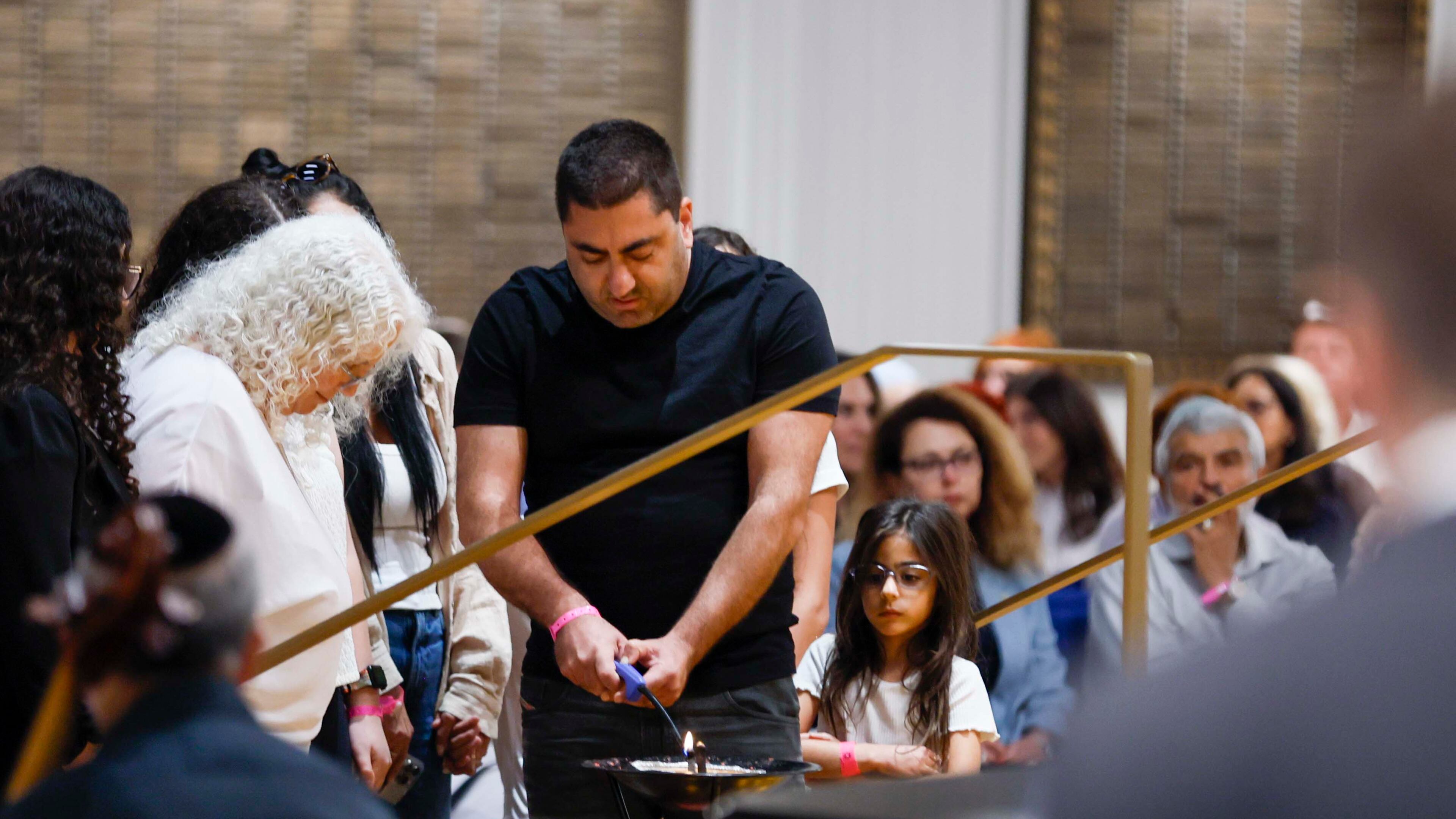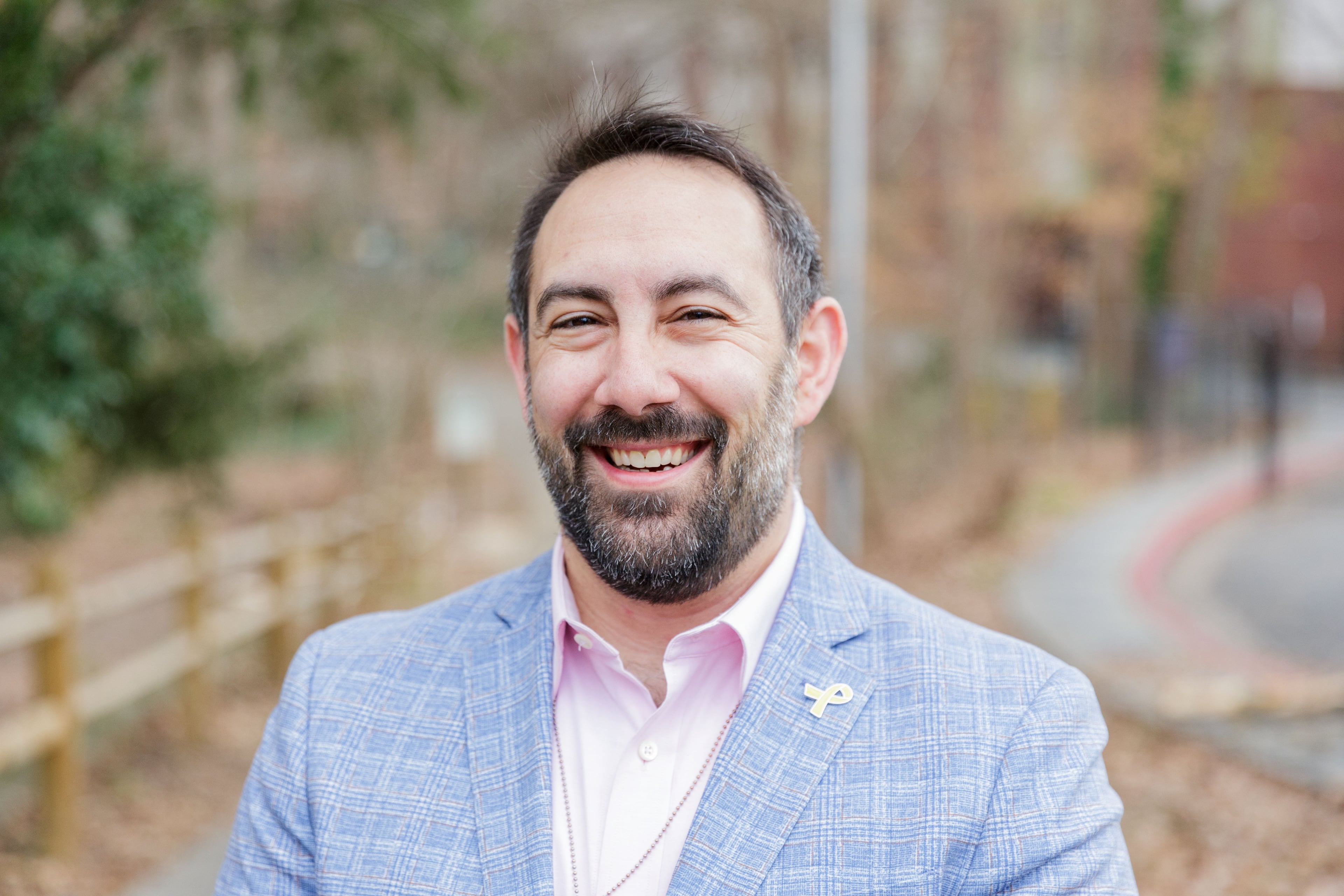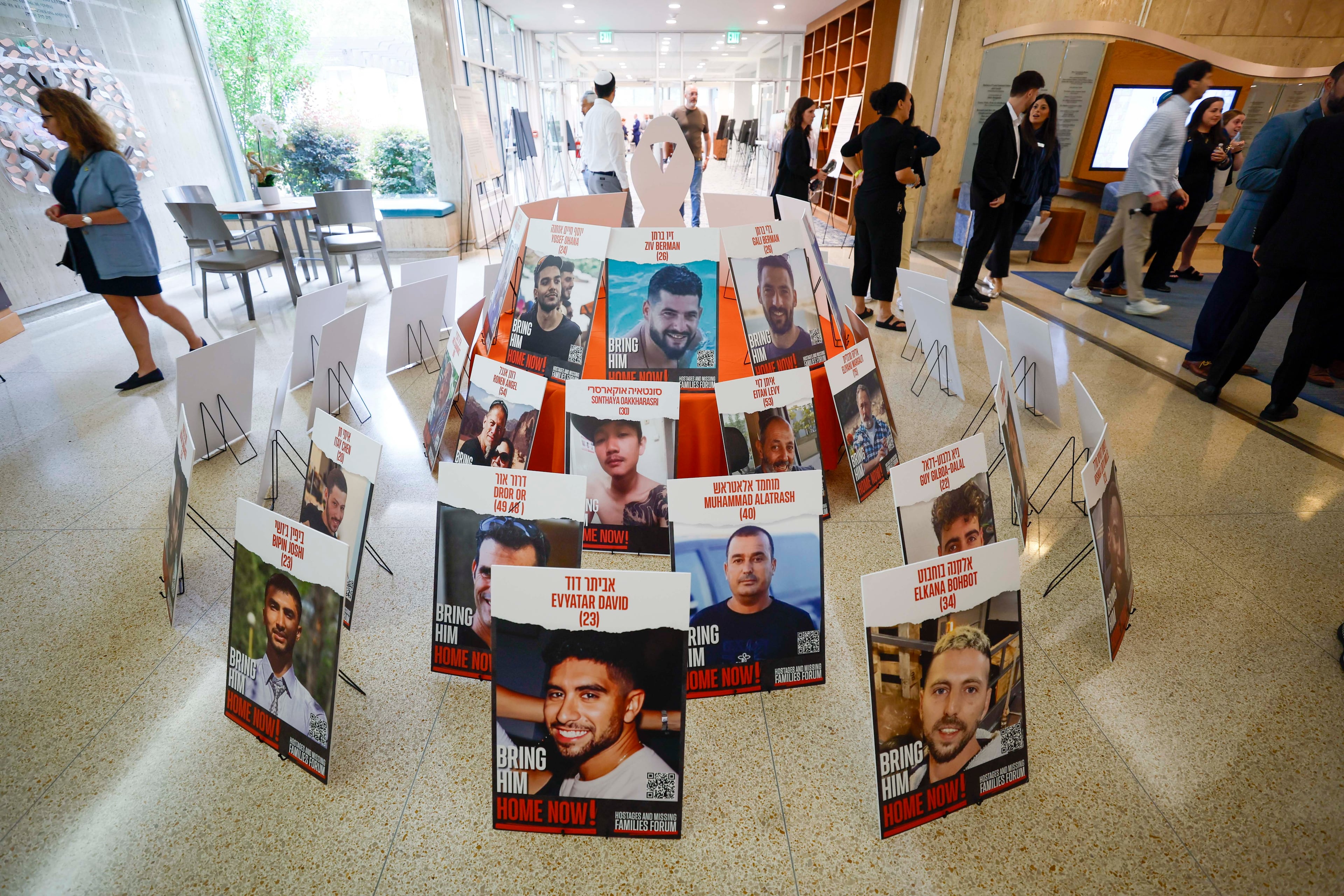Why Oct. 7 still matters two years after Hamas attack against Israel

“Why does your phone keep buzzing?” my wife asked at 6:30 a.m.
I told her it wasn’t me. I turned off my alarm before bed. It must have been hers. She checked her phone and said, “Oh my God… there’s a war going on. Israel is being attacked.”
My memories from that terrifying morning of Oct. 7, 2023, are as vivid as those from Sept. 11, 2001, waking up to horrific news, wondering if my family and friends would be OK.
Sadly, no one has been the same since.
By Tuesday, Oct. 10, 2023, when more than 5,000 Atlantans gathered in Sandy Springs to mourn together and express support for the Israeli people and Jewish community, we learned that more than 1,200 people had been murdered, and 251 were taken hostage by Hamas terrorists in Gaza.
Oct. 7, 2023, marked the deadliest massacre of Jewish people since the Holocaust. But it wasn’t only Jews who suffered. Citizens hailing from more than 41 countries were killed or kidnapped. The terrorists targeted Israel — they targeted Jews - but they also murdered Muslims, Christians, Buddhists, Druze and atheists.
The impact on the Jewish community here in Atlanta and around the country has been profound.
Is Atlanta still ‘too busy to hate’ when it comes to Jewish residents?
Over these unimaginable two years, antisemitism has surged in ways we could have never imagined. It has surpassed some of our greatest fears.

No part of our community has been untouched. On May 21, 2025, Sarah Milgrim and Yaron Lischinsky, a young couple in Washington, D.C., were murdered by a gunman who, after taking their lives, stated, “I did it for Palestine, I did it for Gaza,” according to federal officials.
Less than two weeks later, an assailant yelled “Free Palestine!” as he firebombed a Boulder, Colorado, march calling for the release of the hostages. He murdered an 82-year-old wife, mother and grandmother.
In Atlanta, we’ve seen discrimination and harassment targeting our community, from children to senior citizens. Unfortunately, the “City Too Busy to Hate” seems to have found the time to target the Jewish community.
Many Jewish people now hide their identity, removing symbols like the Star of David, sometimes because they fear for their safety, other times because they’ve been told it might “offend” someone. We’ve seen vandalism, property destruction, boycotts of Jewish-owned businesses and threats.
According to the American Jewish Committee’s State of Antisemitism in America 2024 Report, 32% of college students have felt uncomfortable or unsafe at a campus event because of their Jewish identity. More than three-quarters (77%) of American Jews say they feel less safe as a Jewish person in the U.S. because of the Oct. 7, 2023, Hamas terrorist attacks.

Resilience and solidarity from neighbors make community hopeful
We’ve also borne the financial cost. Jewish institutions have had to increase security dramatically. Uniformed law enforcement officers are now a common sight at Jewish events.
And yet, we remain hopeful.
Georgia’s Jewish community dates back to 1733, when 42 Jewish immigrants arrived from Europe and were welcomed by James Oglethorpe. Today, we are woven into the fabric of communities across the state — from small towns like Fitzgerald to the 40 synagogues across metro Atlanta. We’ve helped shape Georgia’s past and present and are continuing to shape its future.
As much as we’ve experienced antisemitism, we’ve also felt support — from people of all faiths and backgrounds: religious leaders, civic organizations, businesses, political figures, educators and even strangers on the street.
I am hopeful because I have seen our community’s resilience as well as solidarity from our neighbors. We have developed new interfaith and intergroup coalitions, have seen countless allies speaking up and speaking out against hate. Young leaders are stepping forward with courage and creativity, determined to shape a future rooted in their Jewish identity and understanding. Even in the darkest times, light persists.
Still, Oct. 7, 2023, is never far from our hearts and minds — physically in the yellow ribbons we wear on our lapels and the dog tags hanging from necks, symbols of the 48 hostages still captive in Gaza, and in the prayers we just recited this Rosh Hashana and Yom Kippur as we began another year with them still not home and so many families with empty chairs around the dinner table.
Two years later, we remember. We mourn. And we hope — for a day when peace and security are not dreams, but reality.
Dov Wilker is the Atlanta regional director of the American Jewish Committee.


